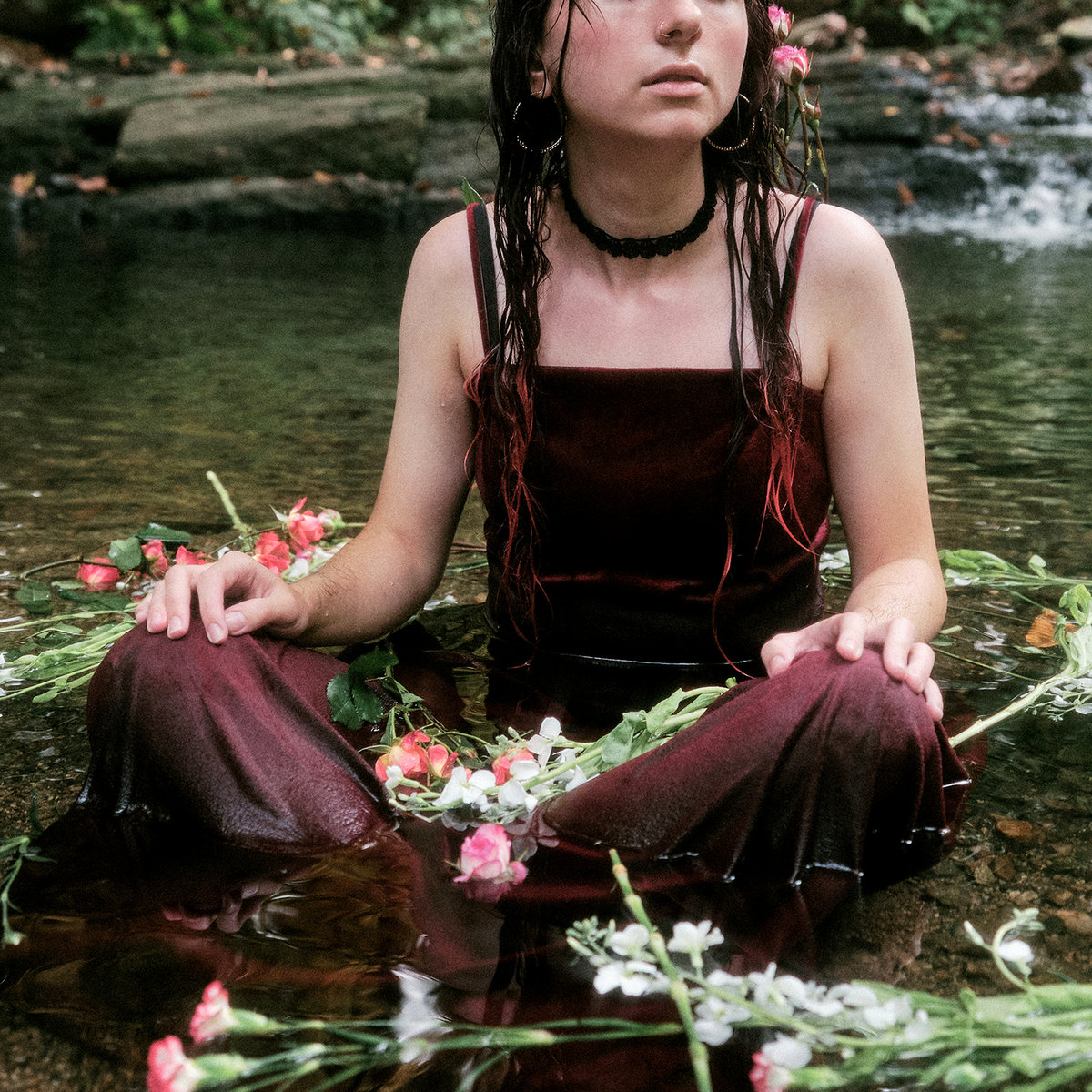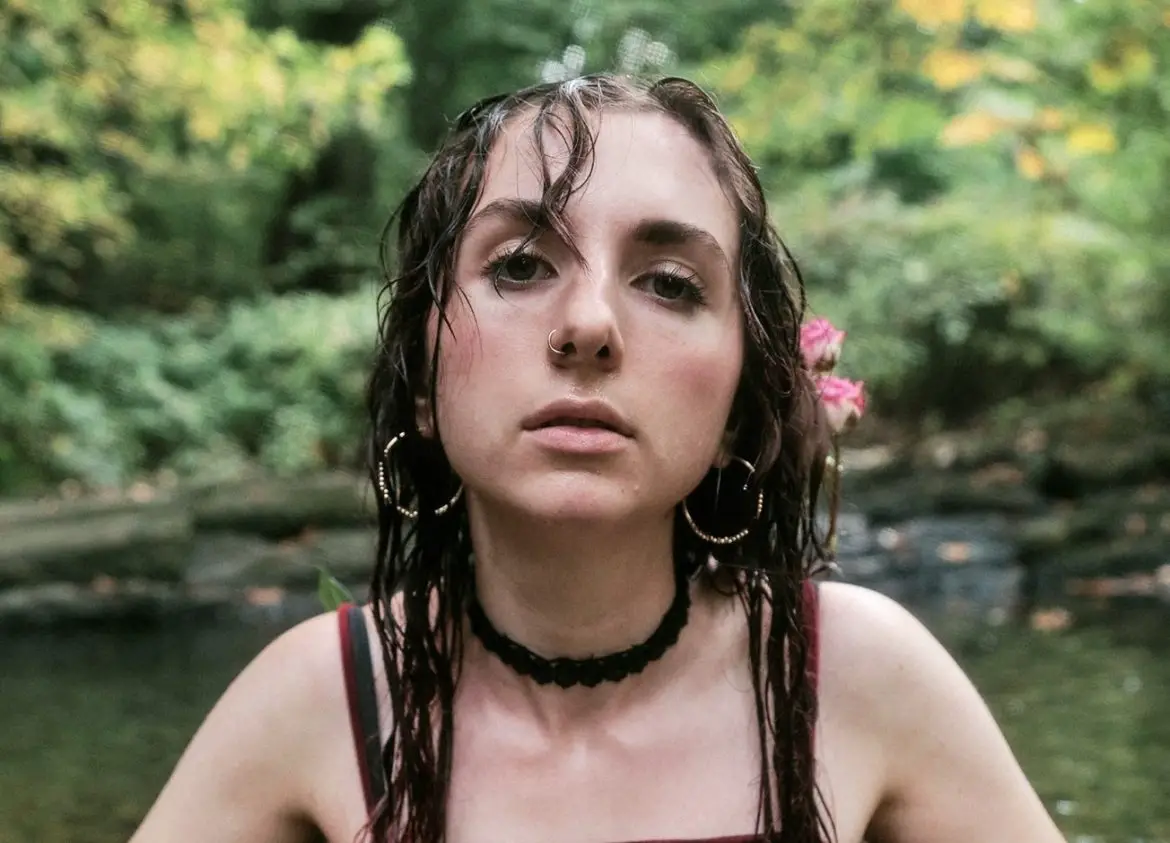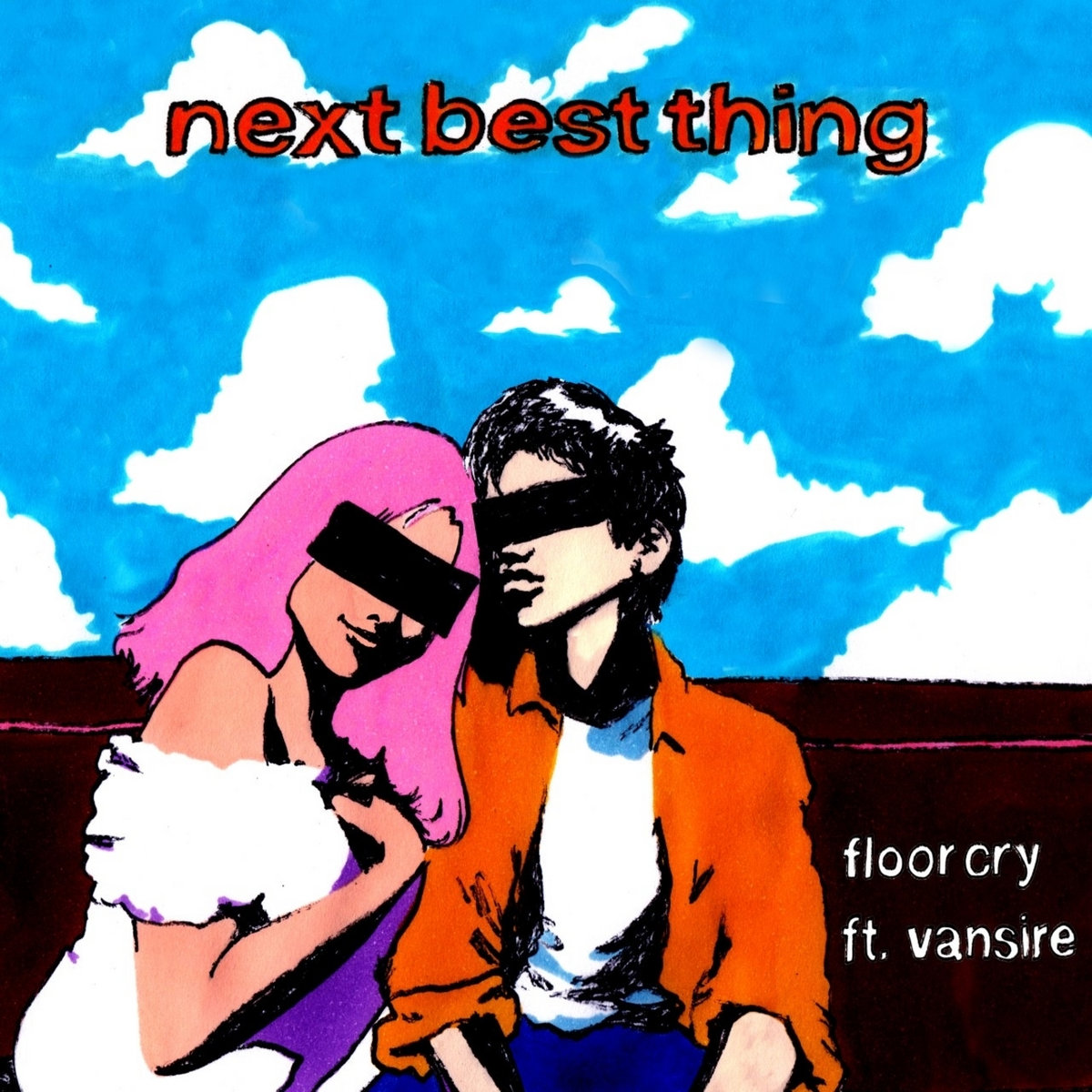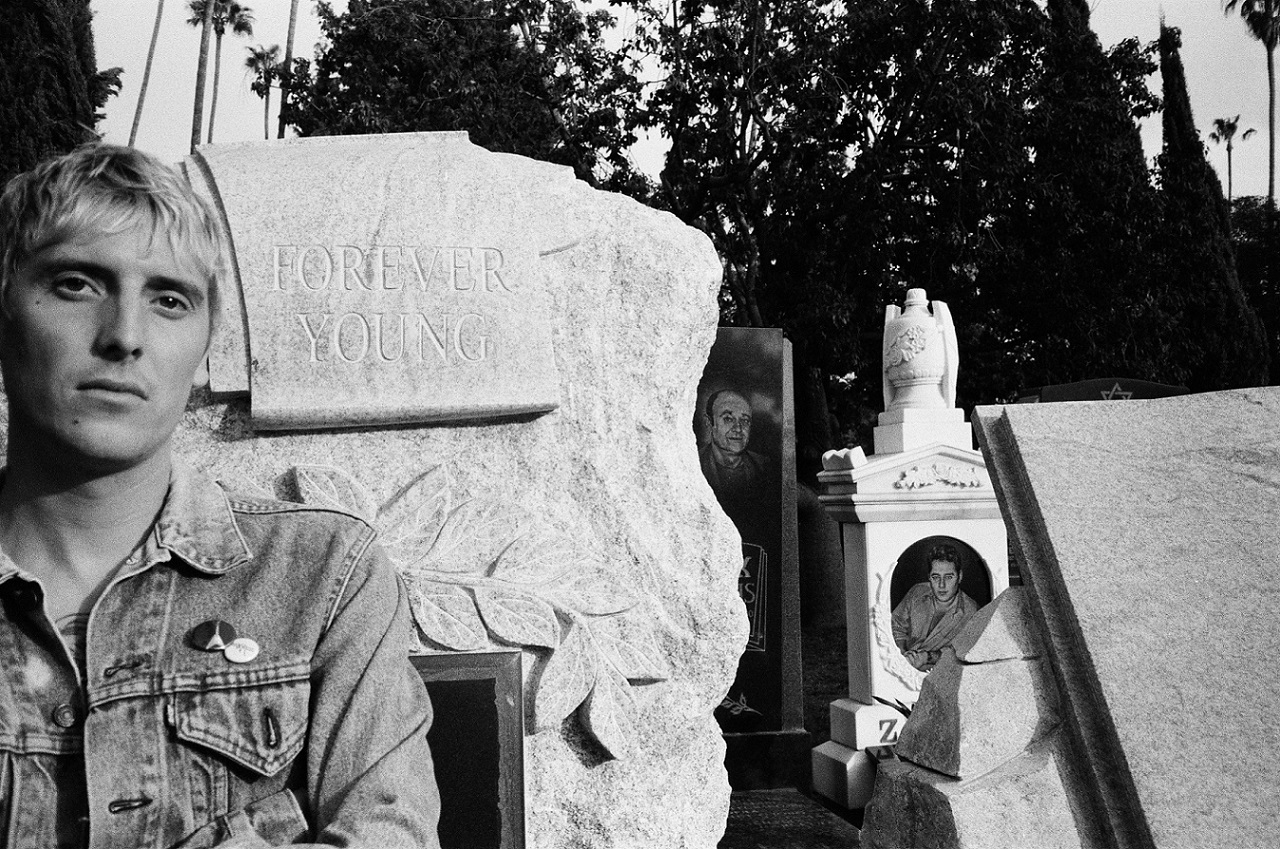On Harmony Woods’ third album ‘GRACEFUL RAGE,’ Sofia Verbilla processes tough emotions on the record she didn’t know she was making.
Stream: ‘Graceful Rage’ – Harmony Woods
“You may not realize it yet, but I wish you the best – yeah, everything’s fucked,” Sofia Verbilla sings in the opening track of Harmony Woods’ third album, Graceful Rage. Throughout the short LP, the Philadelphia artist explores a range of emotions in processing traumatic experiences.
“At its core, Graceful Rage is a record about confronting the emotional rubble that this trauma leaves in its wake,” she wrote in a statement accompanying the album’s release. Whether the songs are atmospheric soundscapes (“I Can’t”), pop-punk blazes (“God’s Gift to Women”), or folky jaunts (“Rittenhouse”), Verbilla brings listeners on an emotional journey of often hard-to-confront emotions. The record is as cathartic as it is moving.
Verbilla spoke to Atwood Magazine about working with producer Bartees Strange, being an emo band, and crafting her most personal record to date.

A CONVERSATION WITH HARMONY WOODS

Atwood Magazine: In the sense that a chunk was written in the pandemic and everything was recorded while everything’s been going on this past year, was this a pandemic record?
Harmony Woods: The whole thing with Graceful Rage is kind of funny because a handful of the songs I had written years ago and then a handful, I had written recently— around when I first got the idea to make it a whole record. So as far as the construction of the songs: yes and no. As far as recording goes, we recorded it with Bartees Strange at the studio he works at on 38 North in Falls Church, Virginia, in September of 2020.
Around when the label and I were exploring actually making the record a reality, Sean from Skeletal Lightning was like, ‘Hey, we recently got an email from Bartees Strange about how he just started recording in this studiom and they have hospital-grade like filters that they’re installing and they’re doing it COVID-safe. So this could be a possibility.’ So, yeah, in a way, it was a pandemic record, but in a funny way, I had been sort of writing this record for year without knowing that I was writing it. The way it all came together was really spooky, but in a really cool way.
What was it like working with Bartees Strange? Last year was such a huge year for him, and September was probably right before Live Forever came out, I think.
Harmony Woods: Yeah, it was like a month or two before. Working with him was absolutely amazing. We hadn’t met before we got to the studio, but we had been Twitter-mutuals for about a year. After I sent him the demos, he sent me this really sweet and thoughtful message about how much he had connected with the songs and how excited he was for us to work together. That was our first proper interaction, and I was just like, “Oh my God. Hell yeah! This dude seems so nice.’
We got to the studio, and we just clicked like immediately. We both are super goofy. We both have very similar senses of humor. Yeah, it is a very serious record, and there were definitely moments where we had some heart-to-hearts. But at the same time, every day we were just laughing up a storm, able to connect in such an awesome way.
Not only that, but both of our favorite band is The National so we were able to connect through them as well. There would be moments throughout the recording when we would just be singing National lyrics at each other. It was an awesome time. He’s such a genius but he’s also genuinely one of the kindest human beings I’ve ever met.
You mention you were able to connect on a humorous level. Like you said, this is a serious record, and – for me, as a listener – this is a very cathartic record. Do you think it’s important to match the serious emotions with humor and comedy?
Harmony Woods: Oh my God, 1000 percent. One of the biggest things I’ve learned about being a person is that you have to be able to find at least a little bit of humor in every personal struggle, or else you’ll go fucking insane. There have been so many situations that I’ve been through that—I don’t know—I felt like I had to carry this resentment, or I had to carry this anger or this sadness as some sort of signal so that people wouldn’t mess with me again. That’s one way of going about it, but it just made me so miserable. Personally, I’m the kind of person who needs to find a little bit of humor and things in order to keep going. One TV show that makes me think about that heavy is Fleabag if you’ve seen it?
I haven’t! So many people have recommended it to me.
Harmony Woods: Ah, it’s so good! It’s just like life, because life is fucking terrible and awful and stupid and dumb, but it’s also hilarious. You just gotta be able to find comfort in all of those different feelings at once, if that makes sense.
You surprise released this album. Why did you opt for that rather than a traditional rollout? Does the fact that you can’t play shows now to try out songs or introduce people who aren’t familiar beforehand have a hand in that?
Harmony Woods: Of course the whole live music thing really can help with building up hype for a record. Since we didn’t have that, if we were going to do a rollout, we would have had to rely on blogs and social media hype and all that kind of stuff.
Throughout the past year, there have just been so many more important things to talk about than just emo songs. To have this long, strung out, rollout for this record, I feel like wouldn’t have been particularly necessary, and also I feel like for this record [a long rollout] may have even come off as inauthentic, in a way. I feel like it just made a whole lot more sense for us to release the record as an entire whole, as opposed to just stringing it along and teasing it for months and months and months. I wanted to give people the entire record.
You just referred to it as an emo record, and on Apple Music, this album is labeled as emo (which i feel like I don’t see, even if bands embrace the label), but there’s really an amalgamation of styles here, and recently there’s been a lot of discussion about fifth-wave emo on Twitter. Why did you choose to embrace the emo label?
Harmony Woods: I have adored emo music since I was like 14, 15 years-old. The first emo bands I had gotten into were the emo revival bands like Foxing and The Hotelier and The World Is… Even from a very young age, I connected deeply with that music, and deeply with this whole movement of: ‘We’re gonna make these really loud and intense songs that are about real serious shit.’ I’ve always greatly appreciated that, and never once for a second would I shy away from an emo label. I’ve never seen emo as a bad day. If anything, it’s something to be embraced, like that kind of expressing your vulnerability in your lyrics. It’s so important to be honest as an artist and honesty is one of the main reasons why I love emo and why I make emo music.
hi friends, i am so grateful to share my new album GRACEFUL RAGE with you all today. it’s a chaotic, intense, messy, passionate record resulting from months spent ruminating in isolation. i hope it makes you feel something. thank you for being here ?https://t.co/YOhvUqiK89 pic.twitter.com/rtqShEVVAl
— HARMONY WOODS (@HarmonyWoodsPA) March 12, 2021
In the piece you tweeted out about the album, you spoke about trauma and loss. There are moments that feel very much like they’re about processing those feelings like on “Good Luck Rd.” and “Easy.” Was this record a way of letting out some of the emotion for processing trauma?
Harmony Woods: Even on our first two albums, I’ve always pulled from past experiences in my life that may have been traumatic, but the way that I tackled those topics on those previous two records was more in an allegorical sense. I would build these fictional stories that were influenced by these past experiences. Whereas on this new record—aside from the song “Rittenhouse,” which is a story—all the other songs on the record were pulling away that mask and presenting these past experiences as they are instead of covering them in fiction, which made it in a way a really scary record to release. It was extremely cathartic recording the songs and putting them out, and I’m really grateful to be able to share this with people, and I’m grateful that people have been able to find comfort in these songs, because that is the main reason why I wanted to release them. I just didn’t want to make it a pity party; the reason why I wanted to put out these songs was even just because of the possibility that people may have been able to find comfort in them.
So “Rittenhouse” is a fictional song.
Harmony Woods: It is based on feelings of extreme discomfort and having to share a very vulnerable truth that is hard to admit, but yeah it is a story. It is an allegory.
Yeah, and as you mentioned, with the album being more personal and real-life, that was something I was curious about.
Harmony Woods: For sure, I want to be as transparent about that as humanly possible, and I don’t want to pass off a lived experience that is not my own, as my own. I want to be 100 percent honest about that.
I take a deep breath and muster out,
“I’m late in every sense of the word
I’m sick and it’s not stopping
Something inside is growing
I figured it’s about time that you heard”
Throughout the record, there are moments that feel like they center around abuse but other moments that seem like they focus a lot on breakups, and sometimes both (like the title track feels like it's referring to gaslighting). Are both those ideas at play?
Harmony Woods: I don’t want to go too into specifics, because I want people to be able to form their own relationships with the songs, but that being said, I feel like it’s important to have conversations about harmful behaviors and harmful actions in general, because I believe that anyone can cause harm, whether or not they’re an abuser or not an abuser. I don’t really think it’s that black and white. I just think everyone is capable of hurting people, and it’s important to keep that in mind, and it’s important to do as little harm as you can, because being a human being and navigating interpersonal relationships is really hard, especially, living in a world where emotional intelligence and learning how to be more empathetic and sympathetic isn’t really at the forefront of what is taught to be most important. Everyone’s gonna mess up at some point. So it’s just important to keep that in mind, and it’s important to call out those behaviors when you see them, not to sort of demonize anyone in particular, but just to make sure as little harm is being done as possible.
I felt like that came up a lot in the choruses of “Easy” and “Good Luck Rd.”
Harmony Woods: Yeah, the last thing I wanted to do with this record was point fingers at any person in particular, but rather just show these things happen, and it’s important to talk about them and discuss them.
Definitely, and one of my favorite songs on the record I feel did that very well, and that was “God’s Gift to Women,” and in your WXPN interview, you referred to it as a “bratty pop-punk song” but it does touch a lot on how even people who posit themselves as a allies or well-meaning people can still be shitty.
Harmony Woods: Or do shitty things rather.
Definitely, and I feel like people don’t really write about that. So how did you get there?
Harmony Woods: That song in particular is based on a situation [where] I guess once I was presented with certain information, I was just really angry and really upset. It was all very fresh. So there was little nuance or little grace to be found in my mindset at that time. So I was just like, ‘I’m angry. I’m allowed to be angry. I’m going to write an angry song.’
What I like to say about that song in particular is: it’s not about a certain person. It’s about the version of a person that existed in my brain at that time: a version of a person that I was deeply mad at, and I just needed to get all that out of my system.
Was the line, “You’re a walking fucking copy of Infinite Jest” more specific? I feel like recently Infinite Jest has become an indicator of a certain type of person.
Harmony Woods: The way I see it is Infinite Jest has become one of those low hanging fruits, like buzzword jokes to describe a pseudo-intellectual person or group of people. It’s a sentiment that deeply resonated with me at the time. I thought it was funny.
Keep writing those records about how you know best
Like you’re a walking fucking copy of Infinite Jest
But i’m done playing along not singing along anymore
Cause you’re not the person the world pretends you are
Another song that I loved and I felt touched on a similar theme in a more solemn sense to “God’s Gift to Women” was “I Can’t.” Can you tell me more about that track?
Harmony Woods: Again not gonna delve into the situation too deeply, because I want everyone to be able to form their own relationship with the song, but it was very much inspired by this concept of forgiveness. Do I need to gift this person with forgiveness in order to be able to move on? I think the whole concept of closure is kind of a funny thing, and I feel like at the end of the day, nobody can give you closure. You have to sort of give it to yourself, and because of that, I don’t necessarily think that you need to forgive someone in order to move on. You can. It can be a super empowering thing to forgive someone, but it’s definitely on a person-by-person basis.
When I was writing that song, I was thinking about it, and I was like, ‘Okay, I don’t think I’m ready to forgive this person yet. Does that mean that I’m unevolved? Does that mean that I’m not going about this the proper way?’ And the longer I thought about it, the more I realized it was empowering for me to make that choice at the time, because I chose not to forgive that person yet, and I realized that that was okay, and that I was still moving on from the situation regardless, which is why I wanted to paint the song against—not this like super sad super moody soundscape. I wanted it to sound almost uplifting and calming and comforting because there is a sort of power and comfort that comes in making that choice for yourself.
What’s up with the beach concept album?
Harmony Woods: [laughs] There’s this person named Paul, who likes our music. I don’t know them personally. They seem like a really cool, awesome human being. During a few livestreams towards the beginning of the pandemic, I was playing quite a few songs that mentioned similar imagery, and that tipped them off. I think in one livestream, I had mentioned something in passing. The same person brought it up in the livestream that we just did a few days ago. ‘Oh my goodness. You remember that!’
So I had a few songs written for a record that I was toying with before the concept of Graceful Rage really started to take over my mind. All I’m gonna say is it might happen, it might not happen. I don’t know. We’ll see. Mainly what I want to say is: shout out to Paul.
Is there anything you’d like to add for your fans or our readers?
Harmony Woods: Your feelings are normal and good and okay and it’s okay to feel things. That’s all I got.
This interview has been edited for length and clarity.
— —
:: stream/purchase Graceful Rage here ::
— — — —

Connect to Harmony Woods on
Facebook, Twitter, Instagram
Discover new music on Atwood Magazine
? © Brooke Marsh
:: Harmony Woods ::









